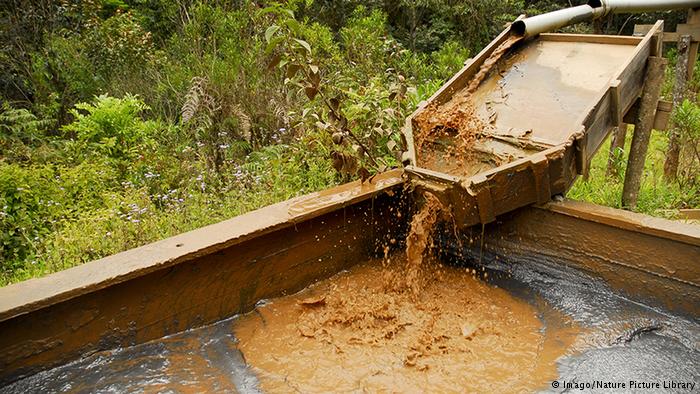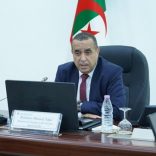Mozambique: Government will not yield to pressure from Mozal - AIM report
German graphite mine to open this year in Mozambique

DW (File photo ) / Graphite mine in Madagascar
Mozambique’s natural resources and geographical location are arousing the interest of German investors, the head of the German Chamber of Commerce for Southern Africa in Maputo says.
So far, Germany had little economic presence in Mozambique, with only about 40 companies, mainly logistics, engineering and chemical, operating in the country, although some big names, like technology companies Siemens and ThyssenKrupp and pharmaceutical giant Merck, are represented.
However, by the end of this year, German group AMG Graphit Kropfmuhl hope to be operating a graphite mine in the village of Ancuabe province of Cabo Delgado, according to Friedrich Kaufmann, head of delegation in Maputo of the German Chamber of Commerce for Southern Africa, in an interview with DW.
DW Africa: How do you convince German businesspeople to invest in Mozambique?
Friedrich Kaufmann (FK): Mozambique is a country rich in natural resources, especially gas, coal, graphite and semiprecious stones. Logistically, it has a very interesting position in Southern Africa, with ports, airports and links with the so-called “hinterland countries” – Malawi, Zambia and Zimbabwe. Logistics is very interesting for German companies.
DW Africa: With regard to natural resources, is a new German mine to start operating?
FK: We’ve been looking at a graphite mine project in Ancuabe for several years. After much preparation, we expect the mine to be opened later this year. Graphite is a very valuable resource, much sought-after in the international market. Like coal, which Mozambique already exports, graphite could be a second natural resources motor for the country.

DW Africa: Has the armed conflict between government forces and the opposition RENAMO has created problems in attracting investors from Germany?
FK: Not yet, because we do not have any German companies in the conflict zone – especially the provinces of Manica, Sofala, Zambezia and Tete a little. The graphite mine is located in the northern province of Cabo Delgado, a peaceful area. Also, Manica, Sofala and Zambezia are mainly agriculture and tourism provinces, and Germany is not traditionally present in these sectors in Mozambique, or indeed in Africa generally. So there are no major problems. The south and Maputo are hardly touched by the armed conflict.
DW Africa: And does the economic crisis, with increasing debt, the devaluation of the metical and rising inflation, worry German businessmen in Mozambique?
FK: Absolutely. It’s a big problem. Currently, there is a shortage of foreign exchange and Mozambique is still an economy that depends on imports – which are paid for in foreign currency. The dollar, the euro and the rand are necessary to pay the bills. If you can not pay the bills, you reach a point that the processes of production and sale in Mozambique are impossible. A small German company, with three or four people, Uranus, which imported parts, engines and machinery from Germany, has closed its doors, simply because they can not pay for transactions.
DW Africa: What has been the secret of other companies? Pay with their own means and hope to one day recover the necessary foreign currency?
FK: Exactly. And there is another option. Companies that are subsidiaries of German companies or international companies in South Africa have access to foreign exchange via the companies to which they are affiliated. Economically, these companies are able to help or make transactions. For example, large banks in Mozambique can survive because banks such as Standard Bank and Barclays have access to hard currency reserves in banks in South Africa, England or other countries.












Leave a Reply
Be the First to Comment!
You must be logged in to post a comment.
You must be logged in to post a comment.